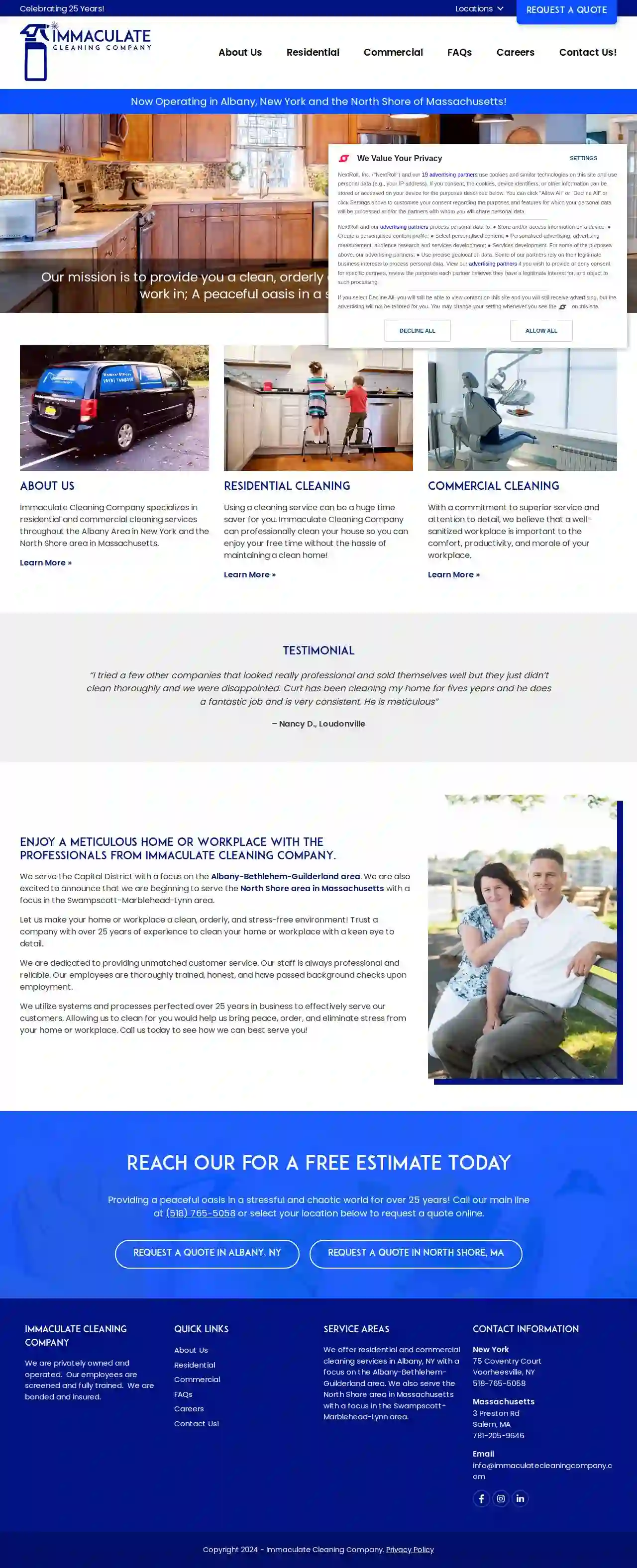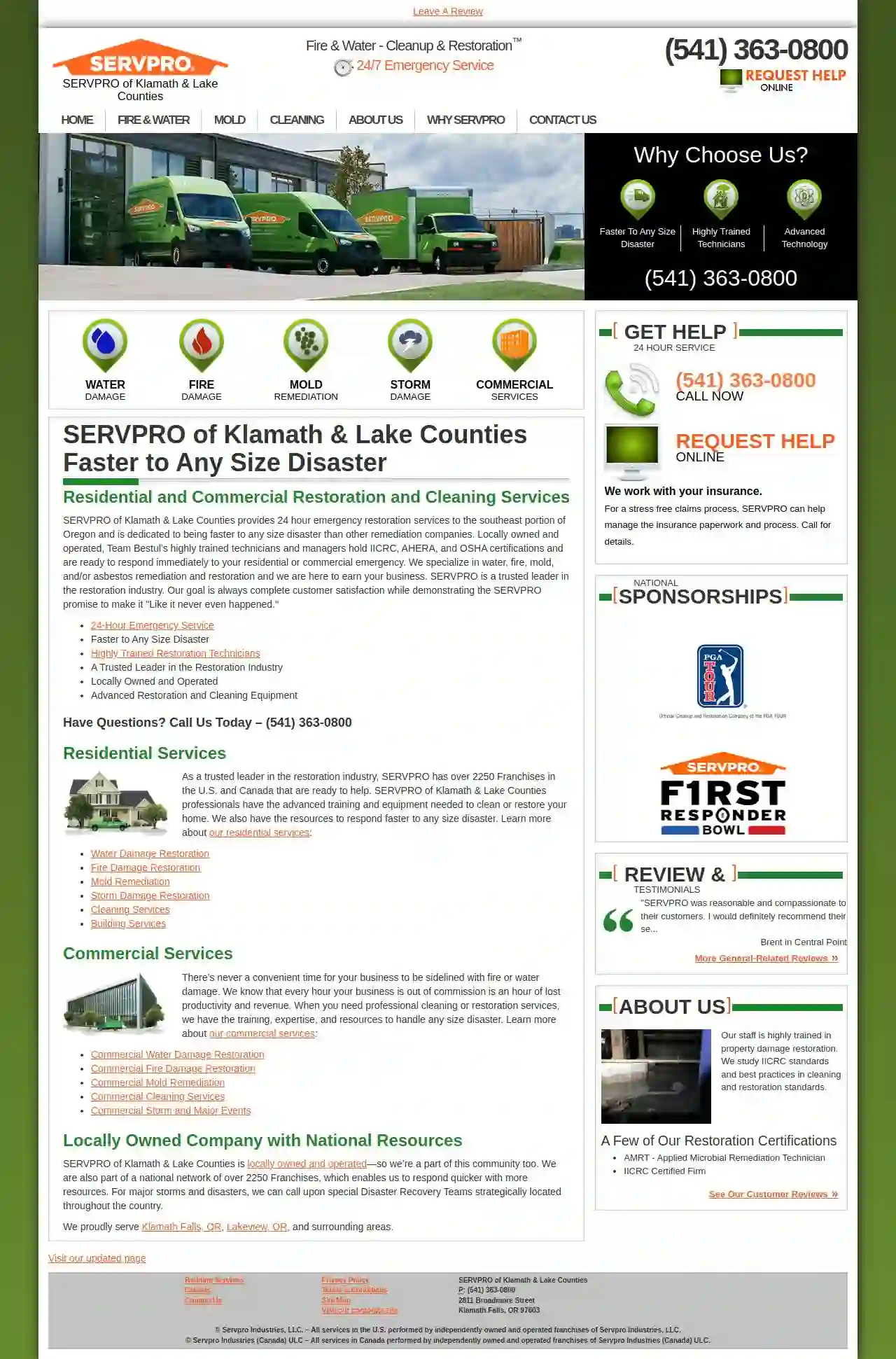Cleaning Services Blackstone
Find the best Residential Cleaning in Blackstone
Get 3 FREE Professional Cleaners quotes for your project today! Compare profiles, reviews, accreditations, portfolio, etc... and choose the best service.
Service Needed
City or Town

New England Industrial Cleaners
51 reviewsBoston, US- Services
- Why Us?
Get Quote
Indigo Cleaning Co. LLC
53 reviewsMedford, US- Services
- Why Us?
Get Quote- SC
SC Cleaning Services
593 reviewsBoston, US- Services
- Why Us?
Get Quote 
Distinct Cleaning Services and Solutions
511 reviewsBoston, US- Services
- Why Us?
Get Quote- HO
HOD Cleaning Services - Commercial Post-Construction Cleanup, Office Deep Cleaning and Janitorial Cleaning in Boston MA
55 reviewsBoston, US- Services
- Why Us?
Get Quote - Am
American Cleaning Co
4.19 reviewsBoston, US- Services
- Why Us?
Get Quote 
Immaculate Cleaning Company
4.920 reviewsBoston, US- Services
- Why Us?
Get Quote
As Clean as Can Be Oregon
52 reviewsMedford, US- Services
- Why Us?
Get Quote
SERVPRO of Klamath & Lake Counties
4.56 reviewsMedford, US- Services
- Why Us?
Get Quote
All Pro Cleaning Systems - Commercial Cleaning
3.521 reviewsBoston, US- Services
- Why Us?
Get Quote
Over 60,241+ Cleaning Services in our network
Our janitorial service providers operate in Blackstone and surrounding areas!
CleaningMatch has curated and vetted the Best Cleaning Companies in and around Blackstone. Find a reliable pro today.
Frequently Asked Questions About Cleaning Services
Find answers to common questions about cleaning services and hiring cleaning companies in the USA.
- Ventilation: Improve ventilation by opening windows, turning on the exhaust fan, and using a dehumidifier to reduce moisture levels.
- Bleach Solution: Mix one cup of bleach with one gallon of water. Wear gloves and eye protection when handling bleach. Apply the solution to the affected area, let it sit for 10-15 minutes, then scrub with a brush and rinse thoroughly.
- Vinegar Solution: For a milder alternative, mix equal parts water and vinegar. Apply to the moldy area, let it sit for an hour, then scrub and rinse.
- Baking Soda Paste: Make a paste of baking soda and water, apply to the moldy area, let it dry, then scrub and rinse. Baking soda helps remove stains and deodorize.
- Commercial Mold and Mildew Remover: Use a commercial mold and mildew remover according to the product instructions.
- Type of cleaning: Deep cleaning, regular cleaning, move-in/move-out cleaning, and specialized cleaning (e.g., carpet cleaning) have different price points.
- Size of the property: Larger properties typically require more time and resources, resulting in higher costs.
- Frequency of cleaning: Regular cleaning schedules often have discounted rates compared to one-time services.
- Location: Cleaning costs can differ based on regional labor costs and demand.
- Additional services: Extra tasks, such as window cleaning, laundry, or organization, will add to the overall price.
- Experience: 'How long have you been in business, and what type of cleaning services do you specialize in?'
- Licensing and Insurance: 'Are you licensed, insured, and bonded? Can I see proof of coverage?'
- Background Checks: 'Do you conduct background checks on your employees?'
- Cleaning Supplies: 'Do you provide your own cleaning supplies and equipment, or should I provide them?'
- Cleaning Methods: 'What cleaning methods and products do you use?'
- References: 'Can you provide references from previous clients?'
- Scheduling and Availability: 'What days and times are you available for cleaning?'
- Pricing and Payment: 'What is your pricing structure, and what payment methods do you accept?'
- Cancellation Policy: 'What is your cancellation policy?'
- Satisfaction Guarantee: 'Do you offer a satisfaction guarantee? What happens if I'm not happy with the service?'
- Experience and a proven track record: Choose companies with a solid history of providing quality cleaning services.
- Positive customer reviews and testimonials: Check online reviews and ratings to gauge customer satisfaction.
- Licensed and insured professionals: Ensure the company has the necessary licenses and insurance to protect you from liability.
- Clear and transparent pricing: Obtain detailed quotes and compare prices from multiple companies.
- Good communication and responsiveness: Choose a company that communicates clearly, responds promptly, and addresses your concerns.
How do I remove mold and mildew from my bathroom?
Mold and mildew can grow in damp areas like bathrooms, posing health risks and aesthetic concerns. Here's how to remove them:
Always test any cleaning solution on a small, inconspicuous area first. After cleaning, take steps to prevent future mold growth by addressing moisture issues, such as fixing leaks and improving ventilation.
Always test any cleaning solution on a small, inconspicuous area first. After cleaning, take steps to prevent future mold growth by addressing moisture issues, such as fixing leaks and improving ventilation.
How much do cleaning services cost in the USA?
Cleaning service costs in the USA vary based on several factors, including:
To get accurate pricing, request personalized quotes from reputable cleaning services on CleaningMatch. They will assess your specific needs and provide a tailored cost estimate.
To get accurate pricing, request personalized quotes from reputable cleaning services on CleaningMatch. They will assess your specific needs and provide a tailored cost estimate.
What should I ask a cleaning service before hiring them?
Before hiring a cleaning service, consider asking these questions to ensure they meet your requirements and expectations:
By asking these questions, you can assess their professionalism, reliability, and suitability for your cleaning needs.
By asking these questions, you can assess their professionalism, reliability, and suitability for your cleaning needs.
How do I find a good cleaning service?
Finding a reputable cleaning service requires research and due diligence. Look for companies with:
Utilize online directories like CleaningMatch to find and compare qualified cleaning services in your area.
Utilize online directories like CleaningMatch to find and compare qualified cleaning services in your area.
How do I remove mold and mildew from my bathroom?
Mold and mildew can grow in damp areas like bathrooms, posing health risks and aesthetic concerns. Here's how to remove them:
Always test any cleaning solution on a small, inconspicuous area first. After cleaning, take steps to prevent future mold growth by addressing moisture issues, such as fixing leaks and improving ventilation.
- Ventilation: Improve ventilation by opening windows, turning on the exhaust fan, and using a dehumidifier to reduce moisture levels.
- Bleach Solution: Mix one cup of bleach with one gallon of water. Wear gloves and eye protection when handling bleach. Apply the solution to the affected area, let it sit for 10-15 minutes, then scrub with a brush and rinse thoroughly.
- Vinegar Solution: For a milder alternative, mix equal parts water and vinegar. Apply to the moldy area, let it sit for an hour, then scrub and rinse.
- Baking Soda Paste: Make a paste of baking soda and water, apply to the moldy area, let it dry, then scrub and rinse. Baking soda helps remove stains and deodorize.
- Commercial Mold and Mildew Remover: Use a commercial mold and mildew remover according to the product instructions.
Always test any cleaning solution on a small, inconspicuous area first. After cleaning, take steps to prevent future mold growth by addressing moisture issues, such as fixing leaks and improving ventilation.
How much do cleaning services cost in the USA?
Cleaning service costs in the USA vary based on several factors, including:
To get accurate pricing, request personalized quotes from reputable cleaning services on CleaningMatch. They will assess your specific needs and provide a tailored cost estimate.
- Type of cleaning: Deep cleaning, regular cleaning, move-in/move-out cleaning, and specialized cleaning (e.g., carpet cleaning) have different price points.
- Size of the property: Larger properties typically require more time and resources, resulting in higher costs.
- Frequency of cleaning: Regular cleaning schedules often have discounted rates compared to one-time services.
- Location: Cleaning costs can differ based on regional labor costs and demand.
- Additional services: Extra tasks, such as window cleaning, laundry, or organization, will add to the overall price.
To get accurate pricing, request personalized quotes from reputable cleaning services on CleaningMatch. They will assess your specific needs and provide a tailored cost estimate.
What should I ask a cleaning service before hiring them?
Before hiring a cleaning service, consider asking these questions to ensure they meet your requirements and expectations:
By asking these questions, you can assess their professionalism, reliability, and suitability for your cleaning needs.
- Experience: 'How long have you been in business, and what type of cleaning services do you specialize in?'
- Licensing and Insurance: 'Are you licensed, insured, and bonded? Can I see proof of coverage?'
- Background Checks: 'Do you conduct background checks on your employees?'
- Cleaning Supplies: 'Do you provide your own cleaning supplies and equipment, or should I provide them?'
- Cleaning Methods: 'What cleaning methods and products do you use?'
- References: 'Can you provide references from previous clients?'
- Scheduling and Availability: 'What days and times are you available for cleaning?'
- Pricing and Payment: 'What is your pricing structure, and what payment methods do you accept?'
- Cancellation Policy: 'What is your cancellation policy?'
- Satisfaction Guarantee: 'Do you offer a satisfaction guarantee? What happens if I'm not happy with the service?'
By asking these questions, you can assess their professionalism, reliability, and suitability for your cleaning needs.
How do I find a good cleaning service?
Finding a reputable cleaning service requires research and due diligence. Look for companies with:
Utilize online directories like CleaningMatch to find and compare qualified cleaning services in your area.
- Experience and a proven track record: Choose companies with a solid history of providing quality cleaning services.
- Positive customer reviews and testimonials: Check online reviews and ratings to gauge customer satisfaction.
- Licensed and insured professionals: Ensure the company has the necessary licenses and insurance to protect you from liability.
- Clear and transparent pricing: Obtain detailed quotes and compare prices from multiple companies.
- Good communication and responsiveness: Choose a company that communicates clearly, responds promptly, and addresses your concerns.
Utilize online directories like CleaningMatch to find and compare qualified cleaning services in your area.